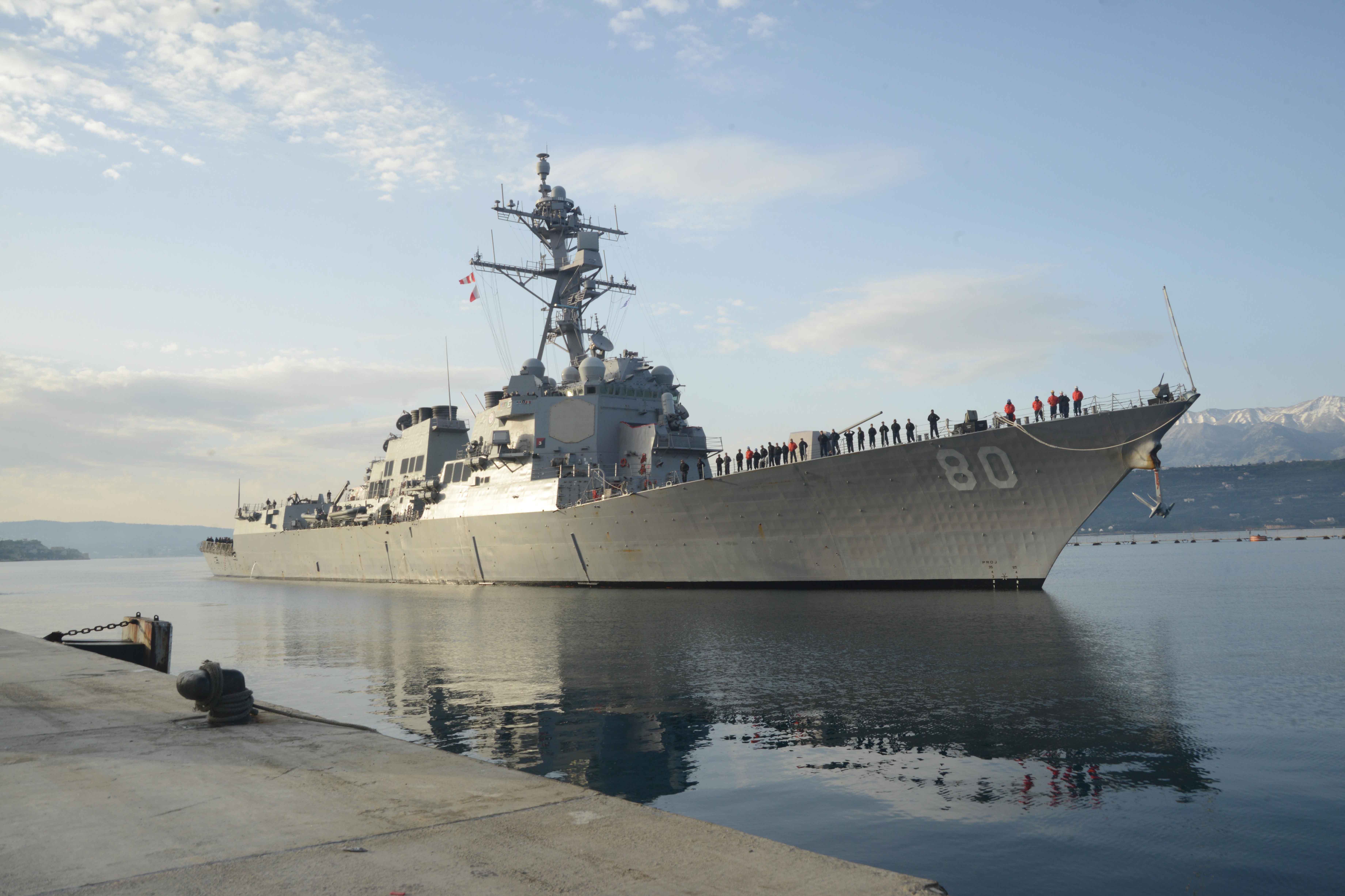U.S. drops plans to send destroyers into the Black Sea due to concerns over Russia

But after new fighting erupted in Eastern Europe between Ukrainian soldiers and Russian-backed separatists, officials decided not to undertake the transit to avoid needlessly escalating the situation, the person said.
Naval movements are frequently subject to change due to maintenance or shifting operational plans, the person said. This particular transit was scrapped due to a “myriad” of reasons, including a desire not to provoke Moscow during a delicate time, the person said.
Turkish Foreign Minister Mevlüt Çavuşoğlu said in an interview with NTV TV that the U.S. had notified Turkey on Wednesday that the ships would not be heading to the Black Sea. Reuters first reported that the movement was called off, quoting diplomatic sources who, like Çavuşoğlu, did not provide a specific reason.
The Pentagon has declined to discuss the possible transit since the reports first surfaced. “We routinely operate and conduct operations in the Black Sea and throughout the European Command [area of operations],” Pentagon spokesperson John Kirby told reporters last week. “And as you also know, I’m not going to forecast or speak about hypotheticals or about future operations.”
The ships, the USS Donald Cook and the USS Roosevelt, are in the Mediterranean Sea conducting maritime security operations, the person said. They were still a few days from the Black Sea when the decision was made to scrap the transit, so they were not forced to abruptly reverse course.
But some in Kyiv were disappointed that the destroyers would not be traveling to the Black Sea after all, said a former senior Ukrainian official. The show of force from the U.S. in the region would have been welcomed as Russia continues to amass thousands of troops at the eastern Ukrainian border, this person said.
Ukrainian officials are also tracking Russian movements suggesting a buildup along the Kerch Strait Bridge to Crimea. The strait connects the Black Sea to the Sea of Azov, and officials are wary of Russia moving to block access to the Black Sea and link its mainland to Crimea.
Ukraine’s Ministry of Foreign Affairs said on Thursday that Russia announced it would be closing part of the Black Sea near the Kerch Strait for foreign warships until October, under the pretense of conducting military exercises. A spokesperson said Russia’s actions violate international law and reiterated that Ukraine “has the right to regulate shipping in these waters of the Black Sea.”
U.S. officials note that President Joe Biden has repeatedly reaffirmed Washington’s commitment to Ukraine’s territorial integrity and recently approved an additional $125 million worth of lethal aid to help the country defend its borders, including two armed patrol boats and counter-artillery radar.
And NATO Secretary General Jens Stoltenberg said Wednesday during a joint press conference with Defense Secretary Lloyd Austin and Secretary of State Antony Blinken that the organization has increased its military presence in the Black Sea region, including with additional air policing and naval presence.
“We are committed to assisting Ukraine with its self-defense needs,” he said.
Still, the situation is escalating quickly: Russia has sent more than 85,000 troops to the border in recent weeks, and at least seven Ukrainian soldiers have been killed since late last month amid a spike in violence in the Donbass region. Ukrainian government forces have been battling Russia-backed separatists there since 2014.
The G-7 foreign ministers — representing Canada, France, Germany, Italy, Japan, the United Kingdom, the United States and the European Union — condemned Russia’s buildup on Ukraine’s borders in a Monday statement, saying they were “deeply concerned” by the move.
“These large-scale troop movements, without prior notification, represent threatening and destabilising activities,” they wrote. “We call on Russia to cease its provocations and to immediately de-escalate tensions in line with its international obligations.”
Meanwhile, Pentagon leaders have been eyeing the Russian military buildup along the border with Ukraine as well as increased Russian activity at sea and in the air.
The commander of U.S. forces in Europe on Thursday predicted there is a “low to medium” likelihood that Russia will invade Ukraine over the next several weeks.
Gen. Tod Wolters, the head of U.S. European Command and NATO’s supreme allied commander in Europe, gave the terse assessment during a House Armed Services Committee hearing on military posture on the continent.
“It is of great concern and our vigilance is high,” the four-star general testified, noting sizable upticks in Russian ground, air and maritime forces.
Pressed on whether the threat of a Russian invasion would increase or decrease outside of the coming few weeks, however, Wolters suggested the threat of an incident could subside given the trends his command observes.
“It depends … on the disposition of the forces,” Wolters said. “My sense is, with the trend that I see right now, the likelihood of an occurrence will start to wane.”
Connor O’Brien contributed to this report.